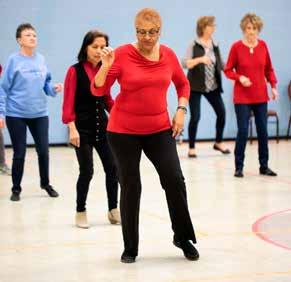Warning Signs of Alzheimer’s Disease According to the Alzheimer’s Association, Alzheimer’s is the most common cause of dementia. Alzheimer’s disease is a type of dementia that causes problems with memory, thinking and behavior. Symptoms usually develop slowly and get worse over time. Alzheimer’s accounts for 60% to 80% of dementia cases.
1
5
8
Memory loss that disrupts daily life. Especially in the early stages, common signs include forgetting recently learned information, forgetting important dates or events, asking for the same information over and over, and/or relying heavily on family members or memory aids.
Trouble understanding visual images and spatial relationships. For some, visual comprehension issues may develop. They may begin to have difficulty judging distance or direction when driving, catching a ball or even picking something up. In terms of perception, they may pass a mirror and not recognize their own image, thinking it is someone else.
Decreased or poor judgment. People with Alzheimer’s disease may experience changes in judgment or the ability to make decisions. They may use poor judgment when dealing with finances such as giving large amounts of money to telemarketers. They may pay less attention to bathing or grooming.
2
Challenges in planning, problemsolving and concentration. Some people may experience changes in their ability to develop and follow a plan or work with numbers. Following familiar recipes, keeping track of monthly bills and maintaining concentration may become difficult.
6
9
Withdrawal from work or social activities. Someone who has Alzheimer’s may start to remove themselves from hobbies, social activities, work projects or sports. They may have trouble keeping up with a favorite sports team or remembering how to complete a favorite hobby. They may also avoid being social because of the changes they have experienced.
New problems with words in speaking or writing. People with Alzheimer’s disease may have trouble following or joining a conversation. They may stop in the middle of a conversation and 3 have no idea how to continue, or Difficulty completing familiar they may repeat themselves. They tasks. Having trouble driving to a may struggle with vocabulary, have familiar location or remembering problems finding the right word or 10 the rules of a favorite game are both call things by the wrong name (e.g., Changes in mood and personality. common red flags. calling a “watch” a “hand clock”). People with Alzheimer’s disease 4 7 may become confused, suspicious, Confusion about time or place. Misplacing things and losing the depressed, fearful or anxious. They Alzheimer’s can cause people to lose ability to retrace steps. A person may become easily upset. track of dates, seasons and passage with Alzheimer’s disease may put Adapted from: 10 Warning Signs of time. They may have trouble of Alzheimer’s Disease things in unusual places or lose understanding something if it is not © 2015 Alzheimer’s Association things and be unable to retrace their happening immediately, and they steps to find them. They may even may forget where they are or how accuse others of stealing. they got there. If you or someone you care about is experiencing any of the warning signs, see a doctor to find the cause and explore which treatments might help you. Early diagnosis can give you a chance to obtain treatment and plan for your future. For more information, see Alzheimer’s Disease and Dementia Support on page 196.
(918) 664-9000
LIFE’s Vintage Guide to Housing & Services
45














